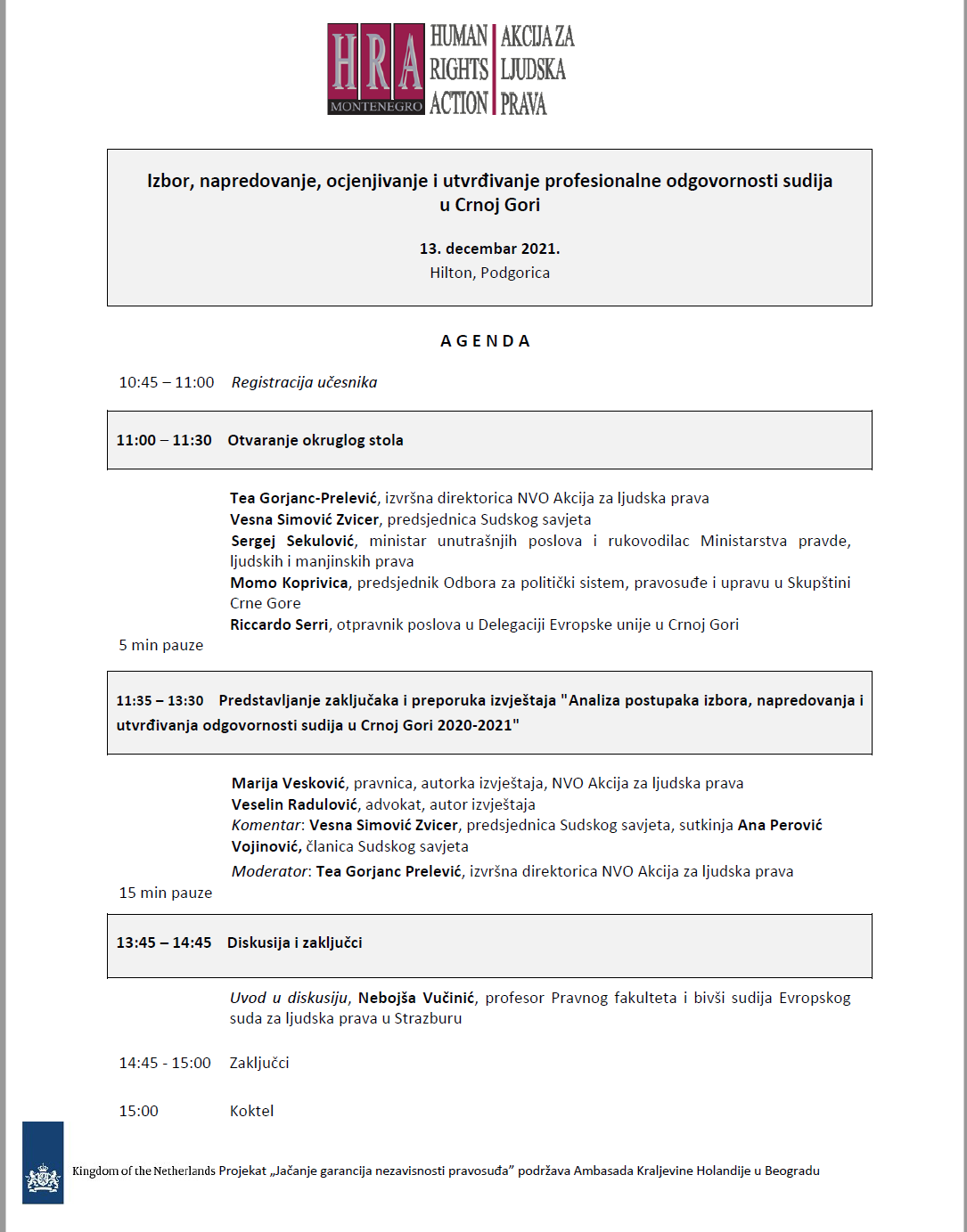
Presentation of the report entitled “Analysis of the Procedures for the Election, Advancement and Determination of Responsibility of Judges in Montenegro in the Period 2020-2021”
12/12/2021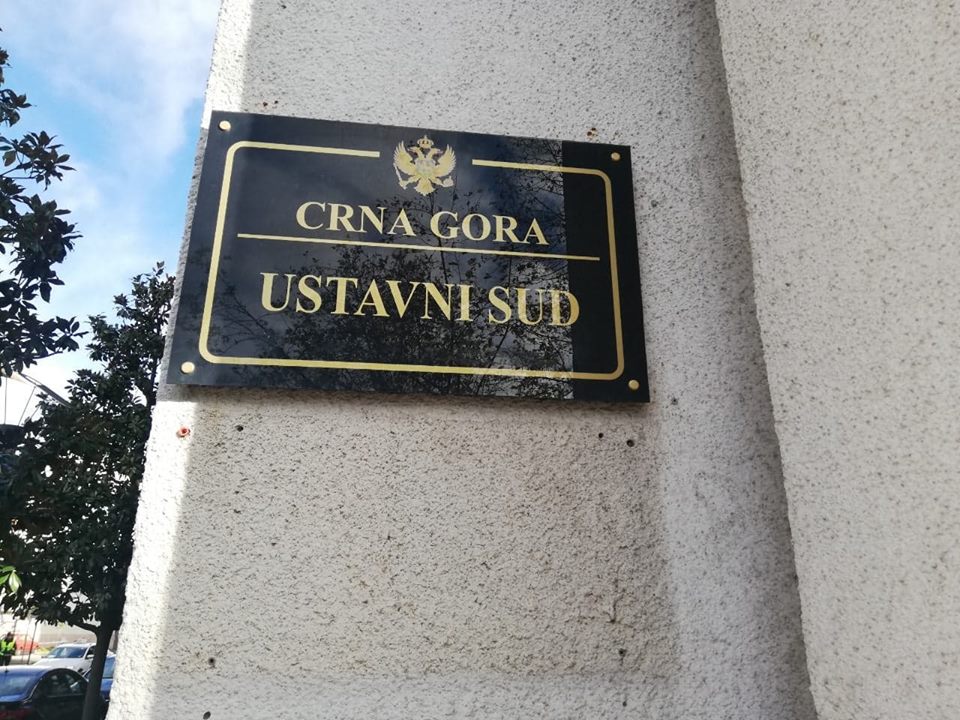
THE CONSTITUTIONAL COURT SHOULD URGENTLY DECIDE ON THE PROPOSAL OF THE JUDICIAL COUNCIL AND THE INITIATIVE OF 11 JUDGES TO REVIEW THE CONSTITUTIONALITY OF ARTICLE 17 OF THE LAW ON PENSION AND DISABILITY INSURANCE
17/12/2021The independence of the Judicial Council has not been ensured at any point since its establishment
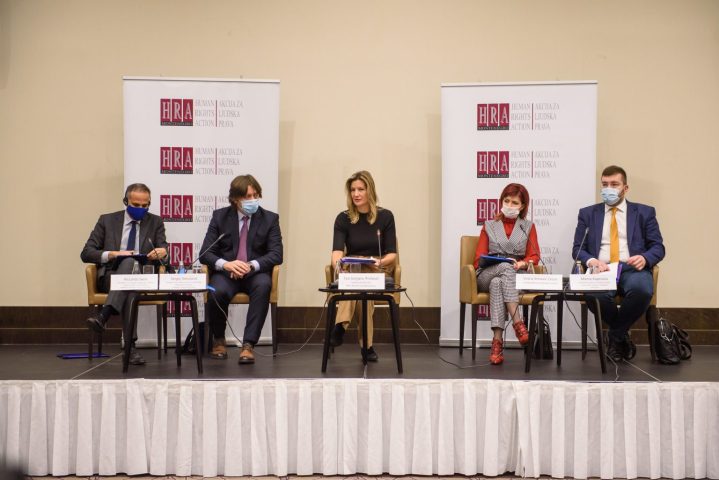
Podgorica – As stated in the Report of the Human Rights Action (HRA) entitled “Analysis of the Procedures for the Election, Advancement and Determination of Responsibility of Judges in Montenegro in the Period 2020-2021”, the independence of the Judicial Council was not ensured at any point since its establishment, and there was no necessary progress in achieving an accountable and efficient judiciary.
The Executive Director of HRA Tea Gorjanc Prelević pointed out that the Human Rights Action had been monitoring the work of the Council since its establishment in 2008, advocating for it becoming an independent and impartial body which would increase citizens’ confidence in the judiciary through the methods of election, advancement and determination of responsibility of judges.
“The Judicial Council is one of the main actors in the reform process. However, the reform goals, i.e. the achievement of an independent, accountable and efficient judiciary, have not only not yet been achieved, but this year there has been no progress in that area at all”, she said.
Gorjanc Prelević also pointed out that the level of trust in the work of the judiciary is continuing to decline.
“According to the public opinion survey conducted by the Human Rights Action at the end of August in cooperation with the Damar agency, more than half of the respondents believe that the Judicial Council does not elect judges in an independent fashion”, said Gorjanc Prelević.
She pointed out that trust in the judiciary has fallen below a third in the last five years, and that only a little more than a fifth of the respondents believe that judges are elected transparently and based on expertise, while half are of the opinion that their election is influenced by external factors.
“Although, according to the Constitution, the Judicial Council should be an independent and autonomous state body, the conditions that would ensure this have not yet been prescribed for its members”, she added.
“For 7 years now, the Council has been composed of the same members from the ranks of distinguished lawyers, who have not had any legitimacy for the last three years, through no fault of their own”.
Gorjanc Prelević said that almost a fifth of the judges (64) had left the judiciary in less than two years.
“The office of 52 judges has been terminated just since the beginning of this year. It used to take as much as 6 years for the same number of judges to leave the judiciary”, she said.
She added that worrisome illegalities were observed in the work of the Judicial Council, although it recently did significantly improve the interviewing of candidates.
According to her, in 50 percent of the cases in the last two years, in which the Judicial Council assigned judges to various courts without conducting a public competition, it did so unlawfully.
“Judges were transferred from misdemeanour courts to basic courts, and from basic courts to the Commercial Court, despite the fact that the law does not allow that”, said Tea Gorjanc Prelević.
She also added that the number of candidates and new judges significantly exceeds the number of those whose office has been terminated.
“This raises the question of the extent to which Montenegro will increase the number of judges by the end of the year. We are already second in Europe when it comes to the number of judges, right after Monaco”, concluded Gorjanc Prelević.
The President of the parliamentary Committee for Political System, Judiciary and Administration, Momo Koprivica, said that it is of crucial importance to elect judicial officials in the institutions that have had acting heads for years.
It was stated in the report that the above parliamentary Committee did not announce a public competition for the election of members of the Judicial Council from the ranks of distinguished lawyers for almost a year. According to Koprivica, it is not enough to announce a public competition for the election of members of the Judicial Council – it is also necessary that those members be elected.
“It is necessary to have an appropriate dialogue between the government and the opposition in the Assembly, given that the election of Council members requires a qualified majority”, Koprivica pointed out.
As he stated, all people’s deputies should have a common interest, which is the rule of law and European integration.
Koprivica believes that there is no sufficient dialogue or will to elect members of the Council.
“It is not terrible if we do not agree on some of the candidates, but it is necessary to find a way to get to the election of judicial officials as soon as possible”, Koprivica concluded.
The Minister of Internal Affairs and head of the Ministry of Justice, Sergej Sekulović, said that the problem with the work of the Judicial Council exists on two levels.
“One is political-institutional, the other normative. This first problem is clear: it is the political capture of institutions and not giving them space to “start breathing the way they should”, Sekulović added.
He said that the institutional crisis is serious, and that it is high time for political elites and people who should apply for competitions to show responsibility.
According to him, the Judicial Council was constituted with great ambition, but has failed to achieve influence on the judicial system and show strength.
“I think that, systemically, it is even weakening. In the normative sense, there is much room for improvement, but the political elite must come to an agreement at the necessary level, so that members of such an important body can be elected”, said Sekulović.
He appealed to everyone to get serious as a society, because the institutional crisis is enormous and worrying.
Head of the European Integration, Political Affairs, Media and Information Sector at the Delegation of the European Union (EU) in Montenegro, Riccardo Serri, said that the EU is a key reform partner in Montenegro.
Commenting on the HRA report, he said that “there it contains no mysteries” and that it shows the state of affairs and presents an assessment of the country’s situation regarding the accession processes.
According to him, no progress has been made in terms of judicial reform in the past year.
“Establishing the rule of law, and therefore progress in Chapter 23, is necessary for Montenegro’s progress in further negotiations”, said Serri.
President of the Judicial Council, Vesna Simović Zvicer, said that it is necessary to recognise the national interests, because we have been standing still for years, unable to agree on the election of members from the ranks of distinguished lawyers.
Speaking about the HRA report, she said that this NGO has already criticised their work, and even filed a criminal complaint against them, but that – regardless – they continued with the dialogue.
“In the report, I recognised some criticisms that are useful for our work; however, there are others with which I cannot agree. I don’t find that terrible, we just have different views on certain issues”, said Simović Zvicer.
She said that, objectively speaking, in observing the work of the Judicial Council, HRA understands the problems with its work well.
“Those problems are certainly the legislative framework and the election of Council members”, added Simović Zvicer.
She recalled the case in which a judge was finally convicted of a criminal offence that made him permanently unfit for his position.
“I learned that from HRA. Before the conviction, he had worked in a small court for a year. We had no knowledge of this, although the president of his court was obliged to inform the public about it”, noted Simonović Zvicer.
According to her, the HRA had asked why proceedings for establishing responsibility were not initiated against all who had participated in this omission.
“In mz opinion, the procedure should have been initiated; we informed the President of the High Court about it but no one did anything”, explained Simonović Zvicer.
The author of the HRA report, Marija Vesković, reiterated that they have been monitoring the election of judges and court presidents for years, and that they have repeated some of their findings in this report.
“One of the first steps to fill vacant judicial positions is the adoption of a plan of vacant judicial positions. We have noticed that this plan is not explained and that it has not been applied consistently”, added Vesković.
According to her, the plan lacks precise dates of the termination of offices of court presidents, which makes it impossible to monitor the process and carry it out in accordance with the law.
“The decisions of the Judicial Council are still not sufficiently explained, which the European Commission has been saying, over and over, since 2015”, said Vesković.
She also pointed to the problematic system of evaluating judges’ performance, which, according to her, is illogical and not objective because it allows the advancement of judges who have been found to have unsatisfactory quality of work or an unlimited number of violations of the Code of Ethics. On the other hand, participation in professional activities, which is something that judges cannot influence, is overvalued.
Attorney and author of the report Veselin Radulović praised the willingness of judges and the Judicial Council to accept criticism, which has always been well-intentioned.
In his opinion, the fact that a large number of criticisms that were founded, or recommendations that were given a while ago, are still current today, is not good.
“That is something that has to be worked on”, said Radulović.
He pointed to the fact that out of 128 complaints that were submitted to the Council, disciplinary proceedings were initiated in just one, although there were cases that required the reaction of the Council. “The Council dismissed the complaint in one, almost unbelievable case, in which the labour dispute lasted 7 years, and where it was concluded for the first time after four years of trial that the lawsuit was not filed on time”.
Member of the Judicial Council, Ana Perović Vojinović, said that she generally agreed with the report, and that she agreed that there was a need for revision when it comes to holders of judicial office.
“You have to admit that it is very difficult to discharge a judicial office; sometimes it seems to me that there is constant talk about an increased level of responsibility, but there is no talk of improving the status of judges”, said Perović Vojinović.
She added that the judicial office is not on a par with judicial office in Europe, and that it is necessary to consider what should be done to improve the judges’ position.
Professor of the Faculty of Law Nebojša Vučinić said that the report of the Human Rights Action serves the purpose of affirming the independence and responsibility of the judiciary, and that this unique report represents a codification and collection of all that has appeared in the media in the past.
“Politics everywhere – not only in the Western Balkans, but also in countries that have an independent judiciary – have a tendency to control courts. This report is very important and useful because it encourages dialogue, without which there can be no solution, that is, there can be no improvement of the state of affairs of the judiciary in Montenegro”, he said.
Vučinić said that we cannot look at the judiciary outside of other segments of society and pointed out that Montenegro, as a country, is in a very difficult situation.
“The Supreme Court has been decimated, and it is questionable whether it can even perform its duties as the supreme institution. This report is like a scan of the judiciary. It analyses the problems we will have to face as soon as possible, both in the normative terms and in terms of their application”, said Vučinić.
The report covered the period from the beginning of 2020 to the end of July 2021, and was prepared as part of the project “Strengthening Guarantees of the Independence of the Judiciary in Montenegro”, implemented by HRA with the support of the Embassy of the Kingdom of the Netherlands.


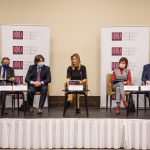



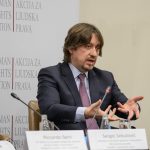







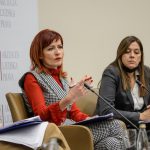
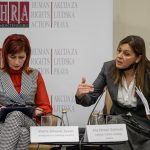
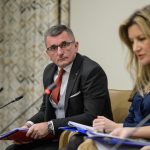
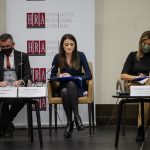







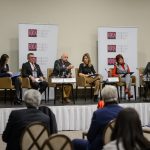







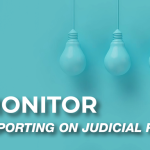

 English
English